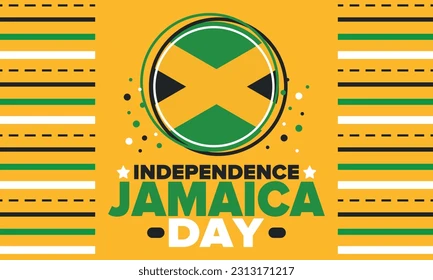Jamaica, a vibrant island in the Caribbean, is known for its rich and diverse culture that blends African, European, and indigenous influences. This unique fusion has given rise to a dynamic cultural identity that is loved and respected across the globe. At DailyArc, we’ve taken a deep dive into the characteristics of Jamaican culture, showcasing how this island’s history, people, music, and traditions have shaped the world.
In this blog, we’ll explore some of the key characteristics of Jamaican culture, examining what makes it so distinctive and how it continues to influence global trends in music, food, and lifestyle.
1. Music: The Heartbeat of Jamaican Culture
One of the most prominent features of Jamaican culture is its music. The island has produced some of the most influential musical genres in the world, including Reggae, Ska, and Dancehall. Reggae music, in particular, is a symbol of Jamaican identity, popularized by legends like Bob Marley. This genre blends African rhythms, rock, and blues influences, often carrying powerful messages of unity, resistance, and social justice.
The energetic beats and socially conscious lyrics of Jamaican music reflect the resilience and spirit of its people. Whether through dancehall parties or reggae festivals, the sound of Jamaican culture continues to captivate audiences worldwide, making Jamaica a global cultural force.
2. Food: A Fusion of Flavors
Another key characteristic of Jamaican culture is its food. The island’s cuisine is an exciting fusion of indigenous ingredients and African, European, and Asian influences. Some of the most iconic dishes include jerk chicken, ackee and saltfish, curried goat, and rice and peas.
Jamaican food is known for its bold, spicy flavours, often achieved through the use of local spices like scotch bonnet peppers, thyme, and allspice. Meals are often served with side dishes that showcase the island’s agricultural richness, such as plantains, yam, and breadfruit. Jamaican food plays a major role in the island’s cultural identity, bringing together communities and providing a taste of Jamaica’s vibrant heritage.
3. Language: Patois as a Cultural Expression
Language is a key element of Jamaican culture, and one of the most distinctive features is the use of Jamaican Patois. This Creole language blends English with African, Spanish, and Arawakan influences. While English is the official language, Patois is widely spoken in everyday life and is an essential part of Jamaican identity.
The rhythms and expressions of Patois can be heard in conversations, music, and dance, serving as a powerful cultural tool that reflects the island’s history of resistance and survival. Patois also plays a significant role in Jamaican culture’s global impact, particularly in reggae and dancehall music, where the language conveys authenticity and pride.
4. Family and Community: The Foundation of Jamaican Society
Family is at the heart of Jamaican culture. Traditional family structures are highly valued, with a strong emphasis on respect, unity, and communal support. Extended families often live close together, and community bonds are strong. This sense of togetherness extends beyond just biological relatives and encompasses a broader network of friends and neighbours.
In Jamaica, social gatherings, whether for celebrations or simply spending time together, are a common way to reinforce these family and community ties. It’s through these connections that many of the island’s customs and traditions are passed down through generations.
5. Religion and Spirituality: A Blend of Beliefs
Religion and spirituality also play an important role in Jamaican culture. The majority of Jamaicans identify as Christian, with a significant influence from both Protestant and Catholic traditions. However, the island is also home to a variety of other spiritual practices, including Rastafarianism, which originated in Jamaica in the 1930s.
Rastafarianism, with its emphasis on the divinity of Emperor Haile Selassie I of Ethiopia and the repatriation of African people to their homeland, has had a profound impact on the cultural landscape of Jamaica, particularly through music and lifestyle. The beliefs of the Rastafari movement have become internationally recognized, with a focus on peace, love, and unity—values that resonate deeply in Jamaican culture.
6. Festivals and Celebrations: Vibrancy and Joy
Jamaican culture is rich with festivals and celebrations that showcase the island’s lively spirit. One of the most famous is Reggae Sumfest, an annual music festival celebrating reggae, dancehall, and other forms of Jamaican music. This event draws thousands of visitors from around the world and is a highlight of Jamaica’s cultural calendar.
In addition to music festivals, there are numerous cultural and religious celebrations throughout the year, including Jamaica Independence Day on August 6th, Bob Marley Day on February 6th, and Carnival—a lively, colourful event showcasing Jamaican traditions in dance and music.
7. Art and Craft: Expressing Jamaican Identity
The creative arts are another important aspect of Jamaican culture, with a rich history of visual arts, literature, and performance. Jamaican art often reflects the island’s history, daily life, and struggles. Artists like Edna Manley and Mallica “Kapo” Reynolds have made significant contributions to the visual arts, with their works displayed both locally and internationally.
Jamaican literature, particularly in Patois, also plays a key role in expressing the island’s culture. Writers like Louise Bennett-Coverley and Claude McKay have captured the essence of Jamaican life, both in their work and through the language they use, helping to establish a distinct literary tradition.
8. Dance: A Celebration of Movement
Dance is deeply intertwined with Jamaican culture. The island has produced some of the most influential dance styles in the world, including ska, rocksteady, and reggae dancing, as well as contemporary styles like dancehall and riddim dancing.
Dance is a communal activity, often enjoyed at festivals, parties, and family gatherings. It’s an important way for Jamaicans to express joy, creativity, and solidarity, and it has become a global cultural export thanks to the worldwide popularity of Jamaican music and dance movements.
Conclusion: The Enduring Influence of Jamaican Culture
Jamaican culture is a dynamic and multifaceted tapestry woven from the island’s rich history, diverse heritage, and vibrant traditions. From its world-renowned music and food to its distinctive language and sense of community, Jamaica’s cultural identity has left an indelible mark on the global stage.
At DailyArc, we continue to celebrate the many characteristics of Jamaican culture that make it unique and influential. Its resilience, creativity, and spirit of unity are qualities that continue to inspire people across the world. Whether through reggae rhythms or flavorful dishes, Jamaican culture remains a powerful and beloved force on the global cultural map.






